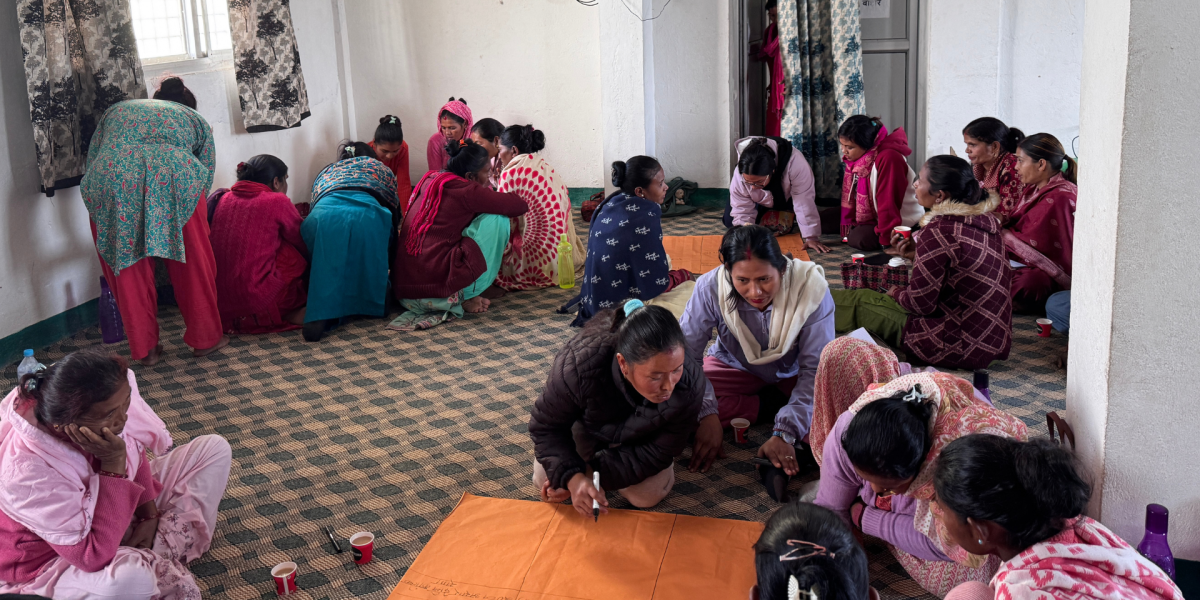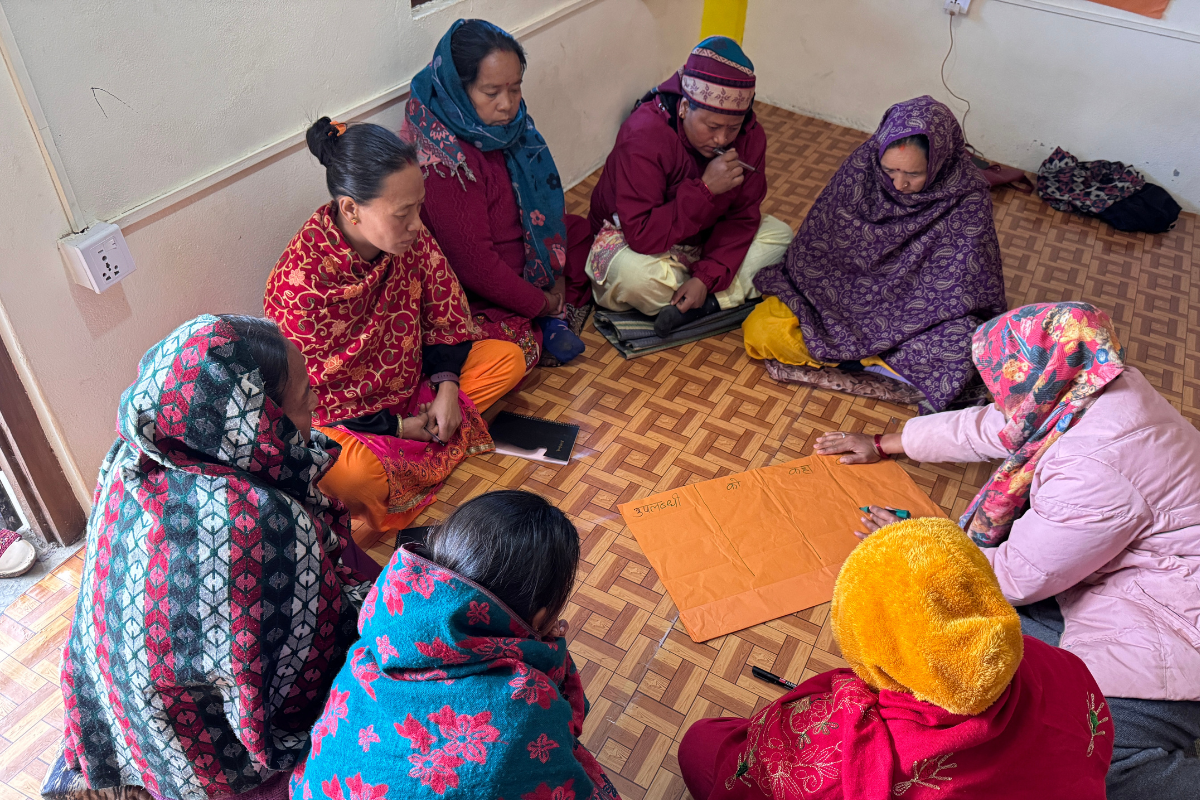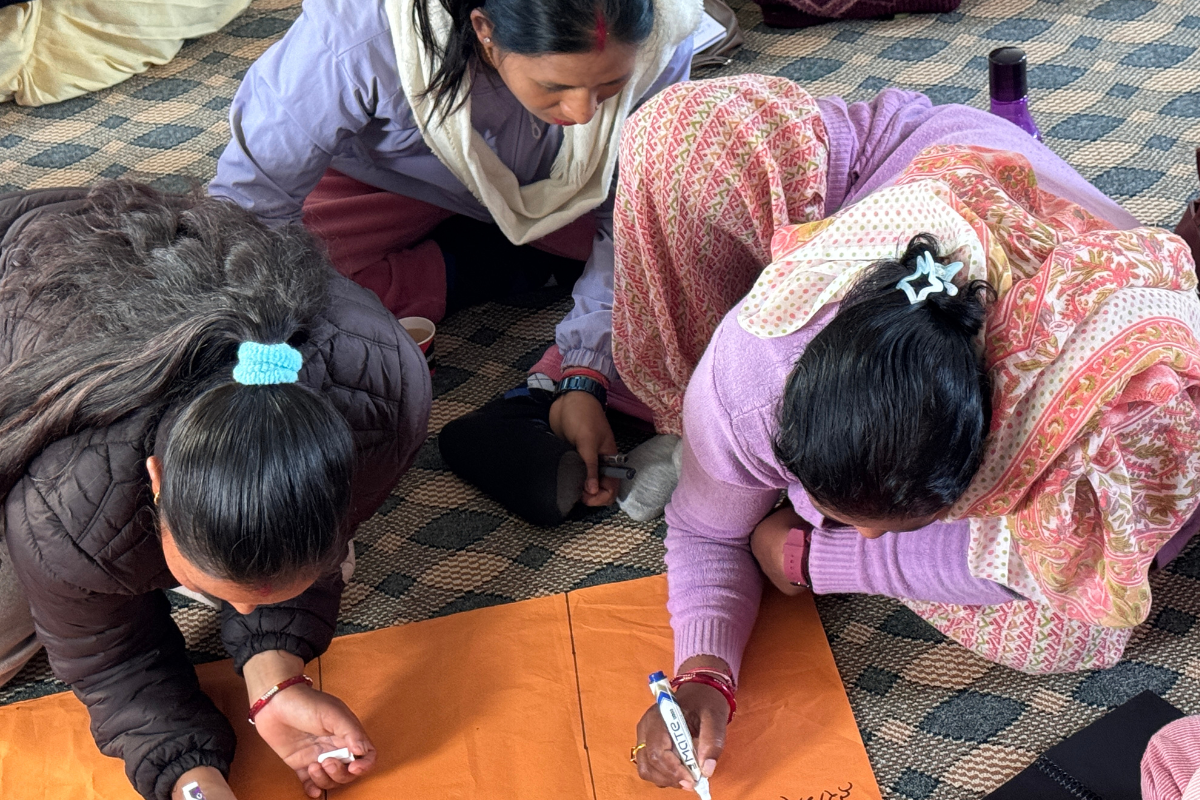Water Justice Fund: Building resilient communities in Nepal through peer learning
Since 2023, when the first women’s groups in the Dang and Kailali districts in Nepal received a grant from Simavi’s Water Justice Fund to tackle their water problems, a lot has been achieved, and many lessons have been learnt. That’s why peer learning is an integral part of the Water Justice Fund.

Bringing together women who already successfully implemented a project in their district and women who just started with theirs: that was the aim of two peer learning sessions that were held in December 2024. They were organised by the community-based organisations working together with the Water Justice Fund in Dang and Kailali.
A new experience
In both sessions around 30 women participated. For many of them participating in community activities had been a new experience. And not always an easy one, having to deal with all the household chores while their husbands were working overseas or facing criticism about stepping out of their traditional role.
So, they were eager to share their experiences, the challenges they faced, and the lessons they had learnt in the process. ‘We had never purchased construction materials before, so our first challenge was finding the right shop. We did not know the prices either, so we had no choice but to pay whatever was quoted, which felt uncomfortable and unfamiliar’, shared Luma Magar from the Ujjwol Women’s Group in Banglachuli Rural Municipality.

Challenging tasks
She further explained the difficulties of securing extra funds from the local government. The group had to navigate bureaucratic processes, prepare detailed paperwork, push for meetings to approve the budget release, and provide necessary documents to open and manage a bank account—all new and challenging tasks. ‘At times, we doubted our decision to take on responsibilities that were traditionally seen as men’s work’, Luma admitted. ‘But we refused to give up. If we can manage our families, we can manage societal responsibilities too.’
Their hard work paid off, and the project was completed successfully. Today, the entire community benefits from the two water reserve tanks they built near the spring. ‘We love these projects as much as we love our homes because we poured our time, labor, and even money into them’, Luma said with pride. ‘Above all, they represent our victory over those who doubted our abilities.’
‘At times, we doubted our decision to take on responsibilities that were traditionally seen as men’s work. But we refused to give up.'
Transparancy and no corruption
Tika Dangi from the Humchuli Women’s Group shared her own experience: ‘Although we have not started our project for water source conservation, fencing and a water tank yet, ever since its approval, some community members - mostly men - have discouraged us, saying the budget is too low. But we stood firm, telling them that the budget will be sufficient if there is no corruption. We have made clear that as we are managing it, we will ensure transparency. Now, seeing our determination, many of them have changed their attitude and have even promised to support us if any challenges arise.
Advising new grantee groups
In Kailali, Nirmala Chaudhary, whose group led the construction of bio-embankments represented her group in sharing about the challenges they faced while planting the bamboo during the construction of the bamboo embankments. She advised the new grantee groups who have received grants for bamboo embankments too, to start the process one month later than they had to ensure the water levels in the river are well below. She also shared that this year, despite the intensity of monsoon rains being high, the embankments protected the land from erosion.

Another group member shared about the need for planting trees in her locality and the struggle she had when visiting the ward level nursery to get plants. Immediately, a member of another group jumped in to suggest that she could help in sourcing plants and that she knew the person working there. There were many such instances throughout the day where someone or the other leaned in offering support to link with networks, people they know.
Making piped water affordable
Back in 2022 when we had visited this same community to conduct a scoping study of the area, we had spoken to the water user committee of Ward 10. They had shared their struggle of communities not willing to connect to the water system because the initial joining fee was too high and unaffordable for many. Through the Water Justice Fund, communities received partial funding to support the installation costs for the piped water system with some costs covered by the local government and the remaining covered by the communities themselves. This allowed 160 households in that area to connect to a piped water system.
'Some community members have discouraged us, saying the budget is too low. But we stood firm, telling them that the budget will be sufficient if there is no corruption.'
The women shared how the local government was very appreciative of this initiative led by the women. This not only ensured that the households now have water but also that the water infrastructure which was in a state of being neglected due to low connections now is running successfully. The local government has also encouraged women groups to bring such initiatives to work jointly for the resilience building in communities against climate change impacts.
Resilience and capacity to lead
The Peer Learning Sessions held in December 2024 highlighted the strength, determination, and collaborative spirit of women-led community groups in Dang and Kailali. These gatherings went beyond just sharing technical knowledge; they created a space where women could exchange experiences, offer support, and inspire one another to overcome challenges. Whether it was navigating bureaucratic hurdles, managing construction projects, or ensuring water access for their communities, these women proved their resilience and capacity to lead.
Their efforts are not just about building infrastructure or completing projects—they are about creating lasting change, empowering communities, and breaking traditional barriers. Watching these women step out of their comfort zones to tackle societal challenges with courage and determination is truly inspiring. It is a powerful reminder that when communities come together, share knowledge, and support one another, they can achieve remarkable progress, building resilience for a better future.

